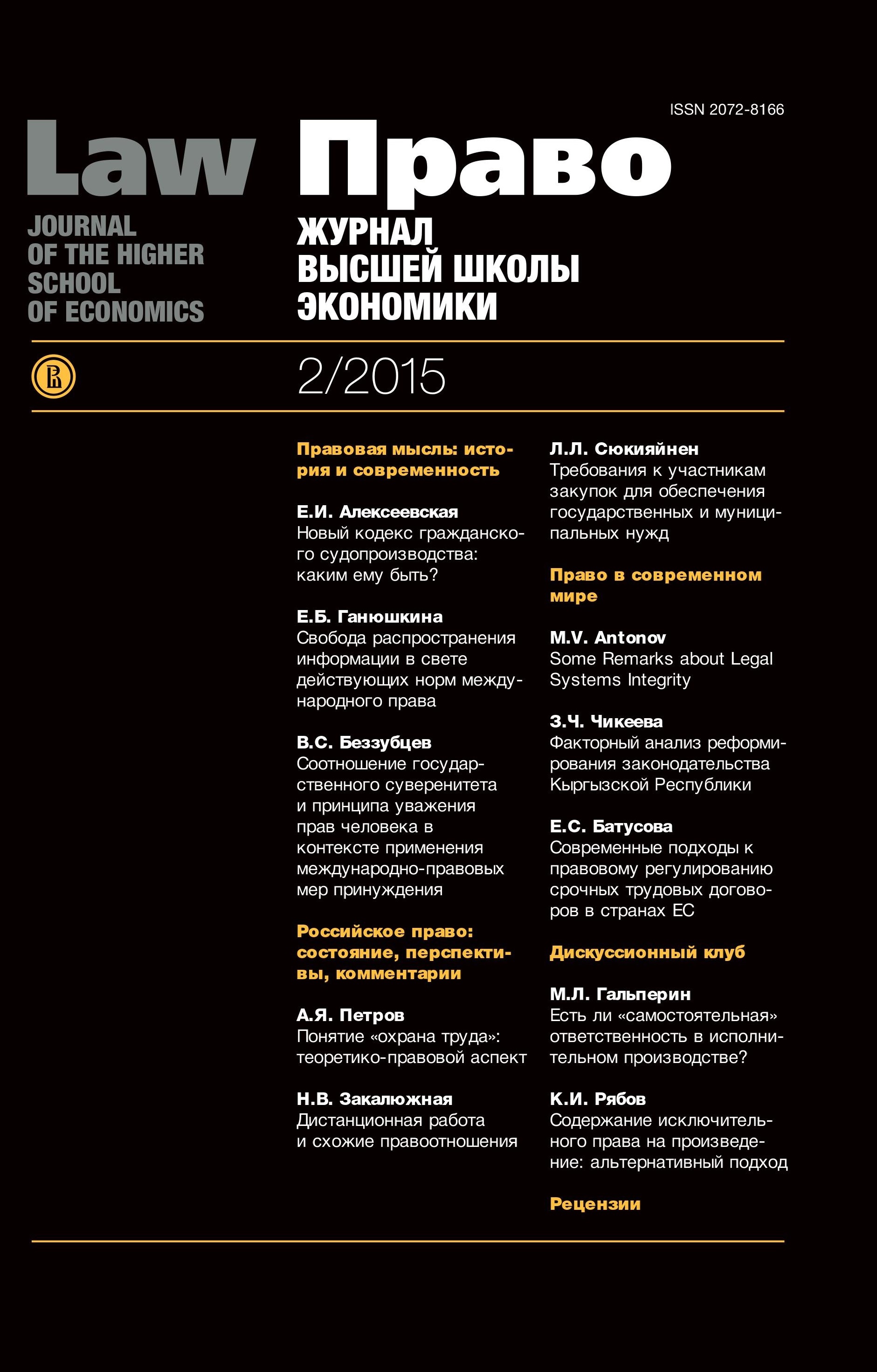Trends in the Supreme Court of Russia Case Practice of 2014 (Tax Disputes)
Аннотация
Following the transfer of supervisory powers in the system of highest level arbitrazh courts to the Supreme Court of the Russian Federation, some 350 tax cases have been heard. On the basis of judicial acts passed, it is possible to establish the positions adopted by the Supreme Court of the RF in resolving tax disputes, set out the tax risks inherent in the process of performance of entrepreneurial activity, and also asses the outlook for court examinations with tax authorities. The article describes the general nature of acts of the Supreme Court of the RF and examines their significance in the formation of practice concerning tax disputes. The author addresses issues regarding the implementation of various judicial concepts (for example, the concept of the good faith of the taxpayer and due diligence). Attention is drawn to general questions of tax legislation in the part concerning application of the method of calculating tax obligations and distinction between various forms of tax control (cameral and field inspections). At present, the Russian government is paying particular attention to the administration of value added tax. A system of total control over payment of VAT is being instituted with the aid of electronic technologies (formation of the BIG DATA system). Consequently acts of the Supreme Court of the RF relating to disputes concerning VAT acquire special importance. The article analyzes the more interesting cases involving VAT examined by the Supreme Court in 2014. The author presents an evaluation of the feasibility of the approaches of the courts in resolving various disputes connected with VAT. In the practice of the Supreme Court of the RF, a significant number of acts touch upon questions pertaining to payment of tax on profit by organizations. This issue required their separate examination in the present article. Moreover, special attention is given to disputes connected with the application of agreements on avoidance of dual taxation upon the payment of tax on profit by organizations. The author notes the emergence of a negative tendency of divergence from the principle of the priority of international law in the resolution of tax disputes.
Опубликован
2015-02-19
Как цитировать
ЮзвакМ. (2015). Trends in the Supreme Court of Russia Case Practice of 2014 (Tax Disputes). Право. Журнал Высшей школы экономики, (2), 136-147. https://doi.org/10.17323/2072-8166.2015.2.136.147
Выпуск
Раздел
Судебная практика


















